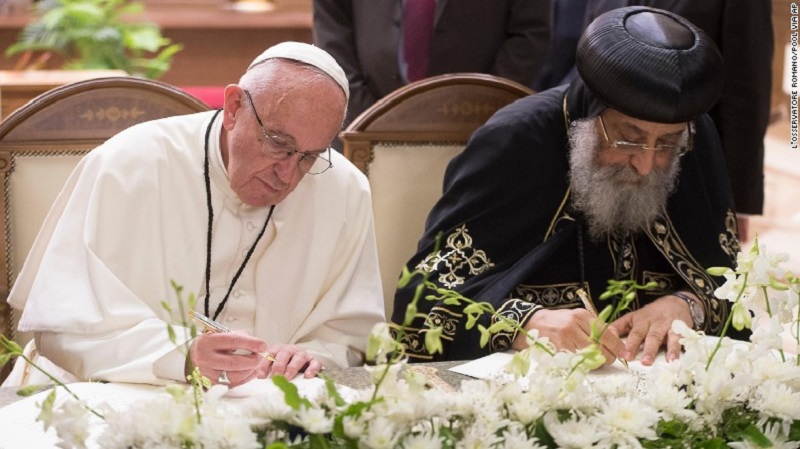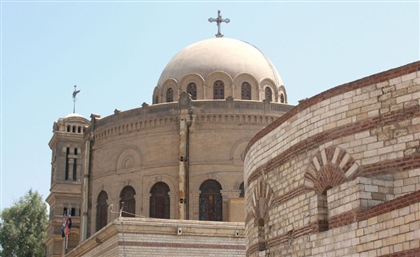Egyptian Bishops Reject the Coptic Church and Pope Francis’ Shared Baptism Agreement
A rejection of the recently signed declaration by the Catholic and Coptic Popes threatens to derail efforts to end centuries-old divides.

During Pope Francis’ first visit to Egypt, a historic agreement was reached between the Catholic and Coptic churches which could potentially reconcile centuries of division. He jointly issued and signed a declaration with the head of the Coptic Church, Pope Tawadros II, which stipulates that should any Christian within either denomination wish to convert to the other, there will be no need for a second baptism.
However, the declaration is not final and states that both churches will “sincerely seek” the mutual recognition of their respective baptising rituals. The highest body in the Coptic Church, the Holy Synod, is yet to hold a discussion and agree on the declaration, as full authority does not rest with the Coptic Pope.
According to Egypt Independent, the decision has not been without its controversy as several bishops and members of the Coptic community’s youth have voiced their rejection of the declaration. Divisions between the two churches stretch back more than a millennium and it wasn’t until the year 2000 when Pope John Paul II became the first ever Catholic Pope to visit Egypt.
The rift has its origins in disagreements that sprung up between different church authorities during early Christianity over the nature of Christ and the Holy Trinity. Over the course of the fourth and fifth centuries, a number of meetings (known as ecumenical councils) between Church leaders convened in an effort to unite Christianity. The first three councils of Nicaea, Constantinople, and Ephesus failed to bring a consensus between the churches as questions over the status of Christ’s humanity and divinity were passionately debated.

The most significant split happened in the year 451 AD during the fourth ecumenical council, known as the Council of Chalcedon. The teachings at this council which were accepted by what was then known as the Great Church, were rejected by the Church of Alexandria, which would then become the Coptic Orthodox Church of Alexandria. The Great Church would then split six-hundred years later into the Roman Catholic Church and the Eastern Orthodox Church.

The efforts that have been undertaken over the last two decades have ended more than a thousand years of estrangement and the recently signed declaration makes unprecedented strides in bringing about greater unity within Christianity. Speaking to Egypt Independent, Coptic researcher Kamal Zakher has played down the opposition and stressed that most of the Coptic youth in fact welcome the reconciliation, as long as it doesn't contradict the Church's teachings. He reassured that the declaration will not be undermined by what is just a small group of radicals on social media.
























